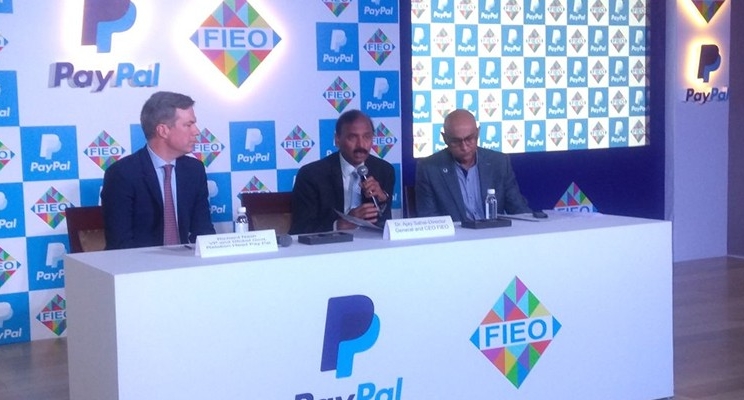FIEO president lauds mid-term review of Foreign Trade Policy 2015-20
December 6, 2017: Welcoming the mid-term review of the Foreign Trade Policy, Ganesh Kumar Gupta, president, FIEO said that the 2 percent increase in the Merchandise Exports from India Scheme (MEIS) rates for labour intensive sectors such as leather, carpets, handicrafts, tools, marine, medical & scientific products and services such as accountancy, architecture, legal, education, hotel and restaurant will provide much needed respite to these sectors which are facing huge competitiveness from other countries.

December 6, 2017: Welcoming the mid-term review of the Foreign Trade Policy 2015-20, Ganesh Kumar Gupta, president, FIEO said that the 2 percent increase in the Merchandise Exports from India Scheme (MEIS) rates for labour intensive sectors such as leather, carpets, handicrafts, tools, marine, medical & scientific products and services such as accountancy, architecture, legal, education, hotel and restaurant will provide much needed respite to these sectors which are facing huge competitiveness from other countries.
The Advance Authorization for no norms cases for exporters registered as Authorised Economic Operators (AEO) marks a new beginning in foreign trade. This move will encourage exporters to apply for AEO Scheme which facilitate customs clearance both in India as well as abroad.
Gupta said that the creation of new Logistics Division in the Department of Commerce and decision to develop National Logistics Information Portal for online logistics market player will go a long way to reduce the logistics cost in India which will also be supplemented by the initiative on Trade Facilitation Agreement and e-Way Bill introduction under GST.
FIEO complimented the Minister for adopting the twin strategy to promote new and sunrise sectors along with employment intensive sectors. This will help the country to create substantial employment but at the same time put its imprint into new areas of exports.
The new Agricultural Export Policy to provide the stable and open exports for long term is the need of the hour said FIEO chief. India should take a lead in organic exports and encourage states to get them certified as organic as has been done by Sikkim already.
Gupta said that procedural simplification to replace IEC by PAN; increase in the validity of the scrips from 18 months to 24 months; reintroduction of ARO facility for supply against Advance Authorization/EPCG/EOU; relaxation in export of free of cost samples from 1 percent to 2 percent of average exports in preceding 3 years with a ceiling of Rs 2 crore would also mitigate the hardship of the exporters and hassles related to its compliances.
FIEO, however, suggested that government should gradually extend the MEIS to other sectors of exports since they are also facing numerous challenges in exports. A one-time relaxation to meet export obligation may be provided to the industry so that they can escape the penal provisions, which will be disruptive and will provide an opportunity to add to exports besides providing employment.
Meanwhile, commenting on the new measures Ashok Rajani, chairman, Apparel Export Promotion Council, said," We welcome the new measures announced during the mid-term review of foreign trade policy. The mid-term review of the FTP 2015-20 has made provisions which will boost trade facilitation and ease of doing business. The extension of validity of scrips from 18 months to 24 months along with the provision of zero GST on sale of scrips are surely going to help the Industry in a big way. The other initiatives like the doing away with the testing of samples for drawback purpose and the introduction of e sealing facility for exporters will lead to quick clearances of the consignment. This will not only help in easing the port congestion but will also aid in quick movement of the cargo. However the exporters were hoping for measures which improve market access and cost competitiveness."



